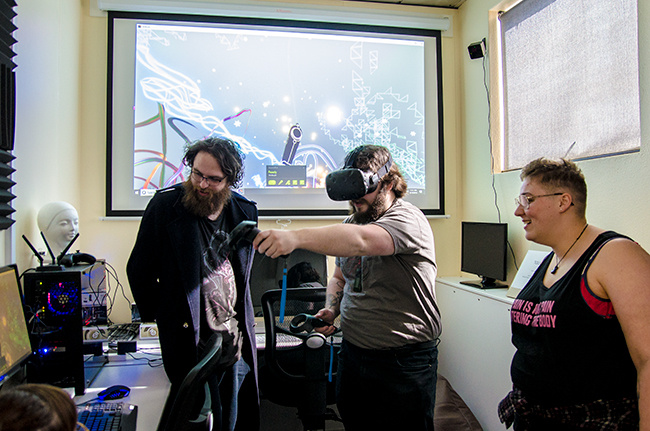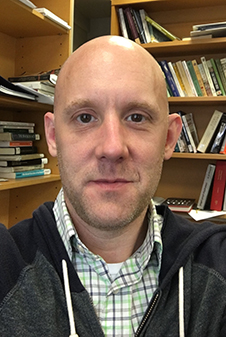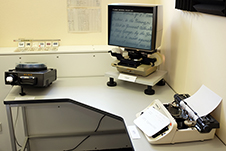Wednesday 19 September 2018 5:29pm

ENGL 467 Storyworlds and Cognition students Jesse Watts (left) and Jack Blair watch Brandon Couch (centre) use Tilt Brush software via a virtual reality headset in the new Digital Humanities Hub ahead of its launch during the Digital Humanities Expo.
The diverse topics covered by an equally diverse multi-disciplinary digital research network will be celebrated during the Digital Humanities Expo on 21 September.
During the Expo researchers from a range of disciplines will give short talks on how their digitally-oriented research enables data and information to be collected faster, processed more easily and communicated in increasingly engaging ways.
Former New Zealand Herald Data Editor Harkanwal Singh will deliver the keynote address on how digital information can be used to enhance storytelling.
Religion Lecturer John Shaver, who will discuss his work contributing to the world’s first comprehensive online quantitative and qualitative encyclopaedia of religious cultural history, says one goal of the Expo is to foster collaborative opportunities across the Humanities.

Dr John Shaver
“Digital humanities research is often more collaborative than traditional research. In the project I am involved in, for example, which aims at finding patterns in religions across the entire pre-historical and historical record, there is simply too much information for any scholar to handle, especially with the incredible recent proliferation of journal articles, and content from non-English speaking regions.
“But, because digital research offers new ways to synthesise information effectively, and present it in more accessible formats, there are incredible benefits to high levels of collaboration”.
Dr Shaver says digital humanities research is also aligned with student needs, and can communicate information in a visual way that is more accessible to younger people.
“We also intend to showcase digital humanities research as a growing and viable form of scholarship that both provides useful tools for analysis, research, teaching and learning.”
A new Digital Humanities Hub, Te Pokapū Matihiko o Te Kete Aronui, will also be launched.
Department of English Lecturer Dr David Ciccoricco says the hub, which is located in the Arts Building, will be home to a creative media suite, linguistics lab, and the Media Archaeology display.
Diverse topics covered . . .
The Digital Humanities Expo will be opened by Professor James Maclaurin, Associate Dean for Research (Humanities).

Some older technology on display in the Digital Humanities Hub
In addition to Mr Singh and Dr Shaver, Expo speakers and topics are:
Dr David Ciccoricco (English) and Grant Baxter (App Lab Ltd); Introducing d-tour: a Dunedin UNESCO City of Literature Experience; an app which provides a virtual tour of places of literary significance in Dunedin, which is an UNESCO city of literatre).
Louise Kewene-Doig (Te Tumu School of Māori, Pacific and Indigenous Studies) He Kohinga Pao me He Kohinga Korero; an app on Māori popular music of the 1960s.
Gywnaeth McIntyre (Classics) Coins, Classrooms, and Community Engagement; preliminary findings of an on-going digital research project on Roman coins housed at the Otago Museum.
David Large (English) Items, Exhibits and Collections: Creating The Landfall Archive (1947–1966)
Catherine Fowler (Media, Film & Communication) Two new ways of researching cinema spectatorship: (1) eye-tracking and (2) the audio-visual essay.
Attendees can also choose to tour the Hocken Collections, Te Uare Taoka o Hākena for a behind-the-scenes look at the library’s digitisation workspace and Lisa Reihana’s two-channel video artwork In Pursuit of Venus, 2012.